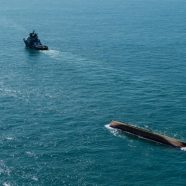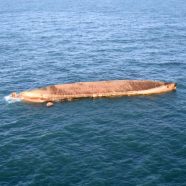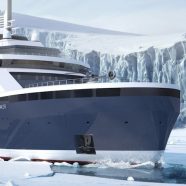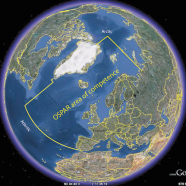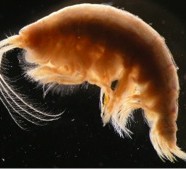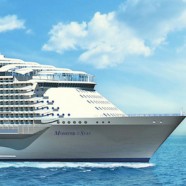The Before, After and Why of a Shipwreck in the English Channel – n°2
Robin des Bois approves the safety decision of the maritime prefect of the Channel and North Sea to carry out with the Abeille Liberté an attempt to tow the overturned wreck of the Britannica Hav towards Le Havre harbour.
The Before, After and Why of a Shipwreck in the English Channel
On the morning of 18 March 2018, the Belgian trawler Deborah (photo n°1) goes fishing in the Channel shipping lane, followed by more than 70,000 merchant ships and 500 million tonnes of hazardous cargos each year, a little as if a collector of greasy papers and mushrooms was working day and night on a motorway or at the edge of the emergency strip.
Robin des Bois and the OSPAR Commission. Cork, Ireland. June 26-29, 2017
OSPAR is an International Cooperation Convention dedicated to the Protection of the Marine Environment of the North-East Atlantic, which came into effect in 1998. France, Belgium, Denmark, Germany, Finland, Iceland , Ireland, the Netherlands, Norway, Portugal, Spain, Sweden, the United Kingdom of Great Britain and Northern Ireland and the European Union are members, as well as Luxembourg and Switzerland due to the influence that the rivers flowing through them have on the Atlantic. Robin des Bois (Robin Hood) has had observer status at the OSPAR Commission since 2005.
Beware of Gigantics !
“If there was a first mistake, it was to think that a human creation was impervious to all forms of destruction, and the second was to be persuaded to also not develop a rescue solution in case of such a disaster,” says Pierre Bayard. “The Titanic will sink,” Editions de Minuit, Paris (France), October 2016.
Mega-cruisers like the MSC Meraviglia are the worst nightmare of maritime authorities and at-sea rescuers. Evacuating 7 to 8,000 people in case of a collision, fire, attack, or a shipwreck in high seas or at night is mission impossible. Ship owners do not even dare to practice this global drill in a sheltered and sunny bay. It is worth noting that in July 2016, Bermuda Islands, and in September 2016, 2 evacuation crewmen drills aboard the Norwegian Breakaway and the Harmony of the Seas (Marseille) have been marked by the sudden fall of 2 launchboats totalling 2 lives lost and 7 seriously injured.
OSPAR loses the Arctic
Report
OSPAR comes from the fusion in 1992 of the Paris Convention for the Prevention of Marine Pollution from Land-based Sources and the Oslo Convention for the Prevention of Marine Pollution by navy and aircraft immersion operations. The latter was initiated following the shock of the oil spill from the Torrey Canyon March 18, 1967.
OSPAR is dedicated to the protection of the northeast Atlantic Ocean. It is a pilot fish. The work of its 5 committees – Biodiversity, Offshore Industry, Radioactive Substances, Environmental Impact of Human Activities, Hazardous Substances and Eutrophication – allows better understanding and combat of the many pressures on marine ecosystems from the open sea of Portugal to the Arctic Ocean. This success is notably materialized by a quality status report without concession of the OSPAR zone in 2010 (1). Seven years later, the OSPAR pilot fish is threatened of asphyxia by the Arctic countries. Robin des Bois has returned from the Biodiversity and Offshore Industry committees which gathered in Berlin and in Oslo the first two weeks of March.
Departure of Saint-Nazaire of Monster of the Seas*
Those who live in housing projects will not really be removed from their usual surroundings. The type of cruise ship that is Harmony of the Seas are apartment blocks. On land, the tendency is to their burst. At sea, they are considered as progress. 6,360 passengers are threatened by seasickness, gastroenteritis, and the crumbling of old fashioned decorations. They are serviced by 2,400 crew members of 70 nationalities living in tight quarters in the lower decks, similarly to the time of the Titanic.
The Modern Express: uprighted but not right
The Modern Express was uprighted on February 22. “For the purposes of the investigation,” the Spanish authorities denied access to the experts, ship-owners, charterers and their representatives until February 26.
Technically speaking, the Modern Express is a roll-on roll-off ship -Pure Car and Truck Carrier- in other words, it is only used for transporting rolling stock.
The Modern Express was loaded with 3600 tons of timber (or 4089 tons according to other sources), divided into four types: okan, azobe, tali and construction machinery. The exotic timbers should have been unloaded in Le Havre and was meant to be sent to European companies.
Modern Express: The burden of timber
Press Release Modern Express no. 5.
According to her charterer, the Modern Express was carrying 3600 tons of sawn timber. The director of ERL France highlights that car and other rolling stock carriers are not adequate for the transportation of logs (1).
Are the vessels of the category of the Modern Express adapted to the transport of wood bundles? If timber bundles are not strapped and lashed properly in the garage decks, they can break off and tip over. Consequently, thousands of tons of sawn timber can accumulate at one side of the vessel and can induce an irreversible list.
Modern Express: Are there any stowaways on board?
Press Release Modern Express no.3
Track records suggest that stowaways wishing to immigrate and access to northern European ports try to board in West African ports, with or without the complicity of port agents and crew.
The French ports that are mostly targeted with such often tragic attempts are Marseille, Sète, la Rochelle, Nantes-Saint Nazaire, le Havre and Rouen.
Owendo timber port in Gabon – the departure port of the Modern Express – is known to be a gathering place for immigrants coming from a number of West African countries and trying to get to Europe.





